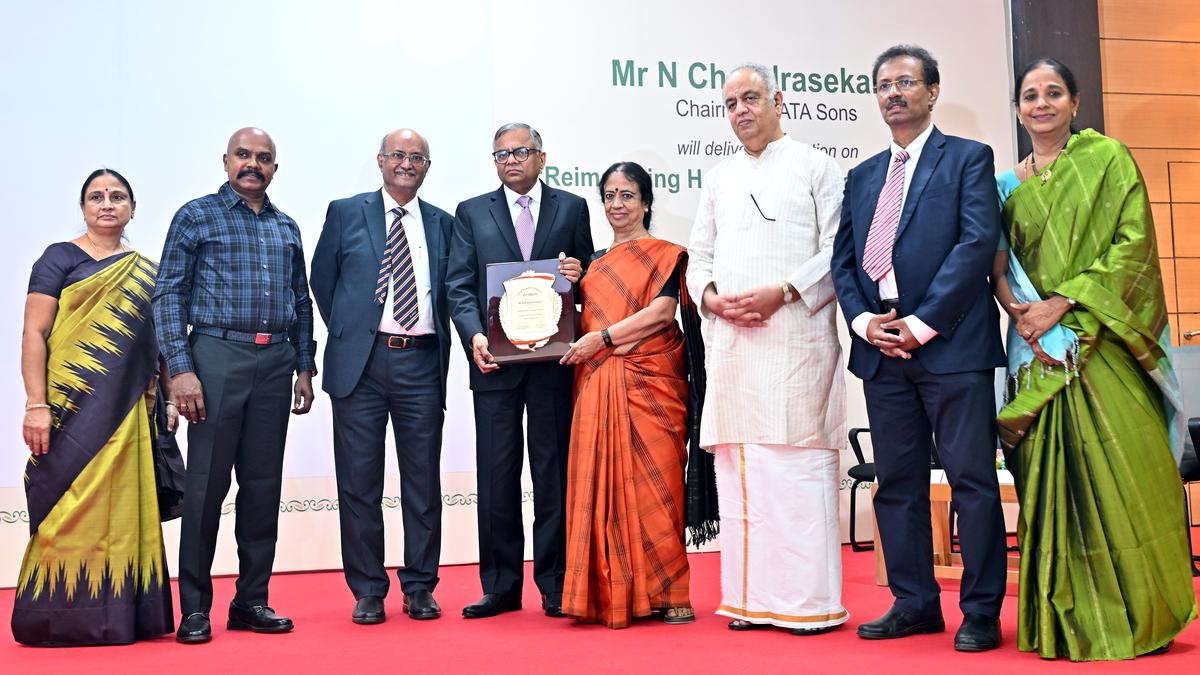
AI cannot replace human intelligence, says TATA Sons Chairman N. Chandrasekaran
The Hindu
N. Chandrasekaran, Chairman, TATA Sons, discusses AI's potential in healthcare and education, emphasizing the importance of human involvement in technology.
While acknowledging the potential of Artificial Intelligence (AI) to bring about phenomenal transformation in education and healthcare systems in the decades to come, N. Chandrasekaran, Chairman, TATA Sons, on Monday, sounded certain that technology cannot replace human element.
The gap between hype and actuality needs to be factored in to analyse the perception that AI would overtake human intelligence.
AI was capable of algorithm analysis in a better way than human mind. Yet, its potential could be realised only when supported by Cloud system for enormous data storage. AI’s impact would be to the extent it is adopted by humans, Mr. Chandrasekaran explained, delivering the 10th Founder’s Oration on ‘Reimagining Health and Care for a New India’ at Ganga Hospital in Coimbatore.
On the changes in store, he said AI will be an enabler in major advancements in diagnosis and treatment, personalised treatment plan by 2025, detecting speech and mental health patterns by 2030, remote surgeries alongwith robotics by 2040, and advancement and prosthetics and regenerative medicine to replace damaged organs by 2050. These advancements are very necessary to ensure that increased life span and health span go together.
On the healthcare scenario in India, Mr. Chandrasekaran said a huge inequality waits to be addressed with technology. AI and Robotics have helped in precision and control, he said, citing the utility of I Knife (Cyber knife) in applying doses of radiation with precision to treat tumours. The AI was an enabler of surgeries, and in the realms of radiology and pathology.
In India, the fundamental problem is access, reflected in the forms of poor doctor-patient ratio, and the concentration of medical experts in urban areas while the real requirement is in rural parts. Between the super experts and low-skilled manpower is the ‘missing middle’, which, if addressed, would save 50 % of the time of experts.
Development of manpower to fill the void will pave way for extending the reach of the doctors in scaling up primary health care, alongside generating three to four million jobs.





















 Run 3 Space | Play Space Running Game
Run 3 Space | Play Space Running Game Traffic Jam 3D | Online Racing Game
Traffic Jam 3D | Online Racing Game Duck Hunt | Play Old Classic Game
Duck Hunt | Play Old Classic Game











